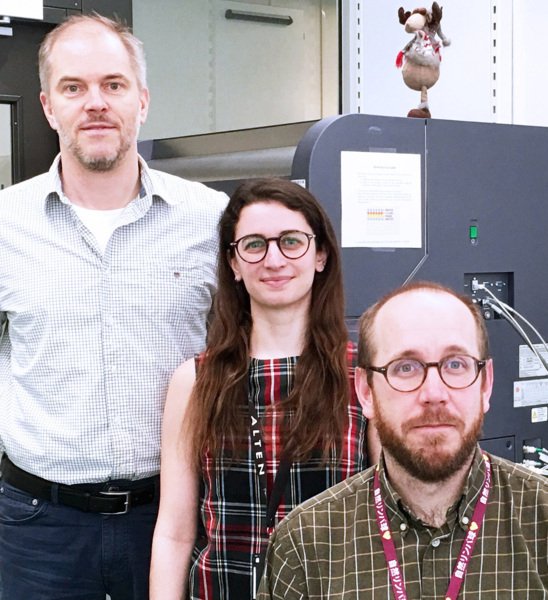Researchers learn more about severe liver disease
Approximately one out of every ten people with hepatitis B are coinfected with hepatitis D, which is among the most serious liver conditions. Researchers at Karolinska Institutet and their German colleagues have described the impact of chronic hepatitis D on parts of the immune system. The study was published in the Journal of Hepatology.

The hepatitis D virus is spread by needle injuries, sexual intercourse, maternal-foetal transmission and other contact with blood. Because the virus is a parasite of hepatitis B, it can only infect individuals who are carrying the latter. Approximately 10 percent of people with hepatitis B are coinfected with hepatitis D, which progresses particularly fast.
Cirrhosis frequently develops in 7 to10 years and requires a liver transplant. The risk for cancer of the liver is elevated as well. Approximately 70 million people, mostly in Africa and Asia, are infected with hepatitis D.
No cure or specific treatment has yet emerged, and the aetiology of the condition remains unknown. Researchers at Karolinska Institutet and Hannover Medical School have nevertheless solved one more piece of the puzzle. The study focused on mucosal-associated invariant T (MAIT) cells, part of the non-specific immune system whose role is to respond quickly to foreign viruses and bacteria. Normally the cells are abundant in the liver.
Substantially fewer MAIT cells
The researchers studied 41 subjects with concurrent hepatitis B and D, 38 with chronic hepatitis B only and a number of healthy controls. Examination of blood samples by means of flow cytometry revealed that individuals with chronic hepatitis D had substantially fewer MAIT cells. A smaller number of liver samples pointed in the same direction. The scientists also came up with an explanation for the dramatic loss of MAIT cells as a result of hepatitis D.
“Very little is known about the way the immune system works or why it is affected by chronic hepatitis D”, said Dr Niklas Björkström, Associate Professor at Karolinska Institutet’s Department of Medicine in Huddinge, Stockholm. “One of our upcoming projects will be to follow these patients over time and determine whether the degree of immune deficiency can serve as a prognostic marker.”
Among the sponsors of the study were the Swedish Research Council, Swedish Cancer Society, Swedish Foundation for Strategic Research, Swedish Society for Medical Research, Radiumhemmet Research Foundation, Knut and Alice Wallenberg Foundation, NovoNordisk Foundation, Centre for Innovative Medicine at Karolinska Institute and Stockholm County Council. Some of the authors received research scholarships or payment for lectures and other activities from pharmaceutical companies. The article identifies possible conflicts of interest.
Publication
'Chronic hepatitis delta virus infection leads to functional impairment and severe loss of MAIT cells'
Joana Dias, Julia Hengst, Tiphaine Parrot, Edwin Leeansyah, Sebastian Lunemann, David F.G. Malone, Svenja Hardtke, Otto Strauss, Christine L. Zimmer, Lena Berglin, Thomas Schirdewahn, Sandra Ciesek, Nicole Marquardt, Thomas von Hahn, Michael P. Manns, Markus Cornberg, Hans-Gustaf Ljunggren, Heiner Wedemeyer, Johan K. Sandberg and Niklas K. Björkström
Journal of Hepatology, online 14 May 2019
